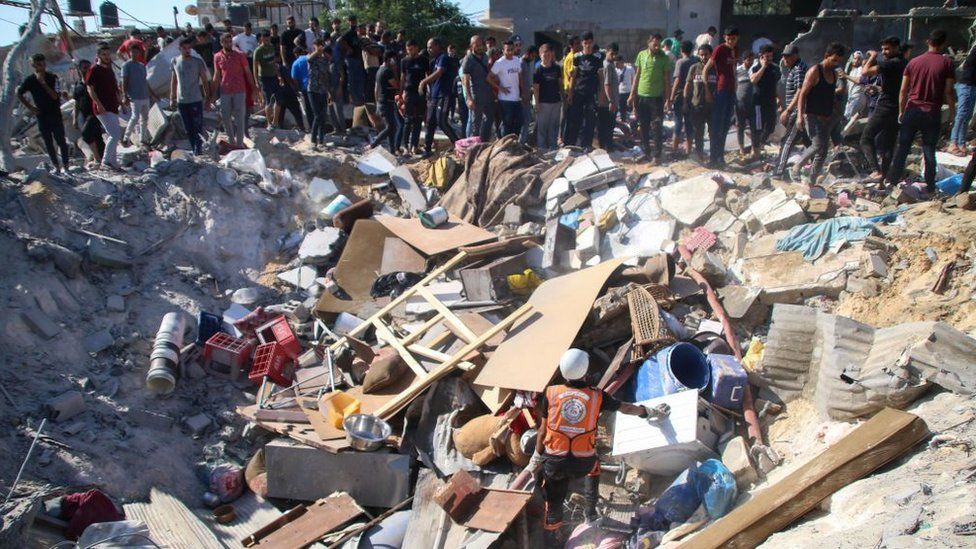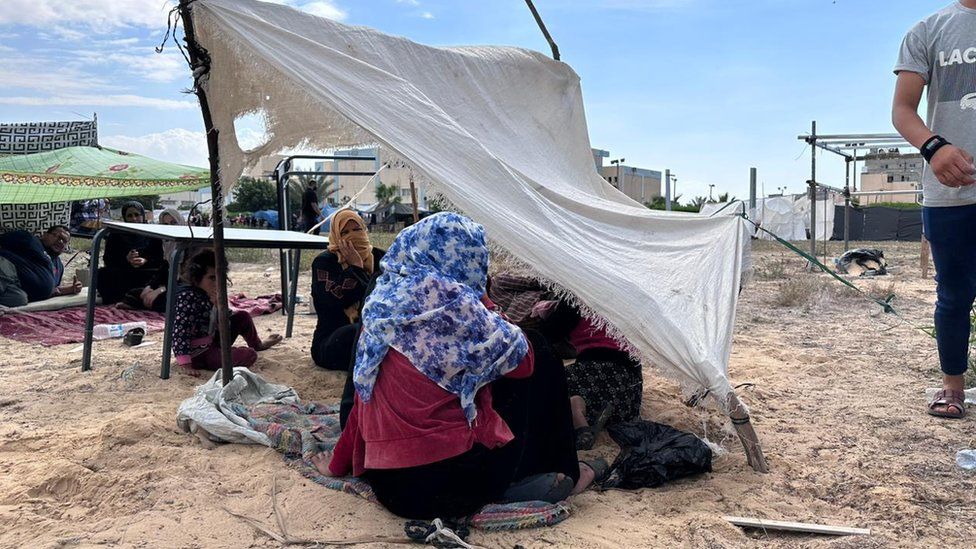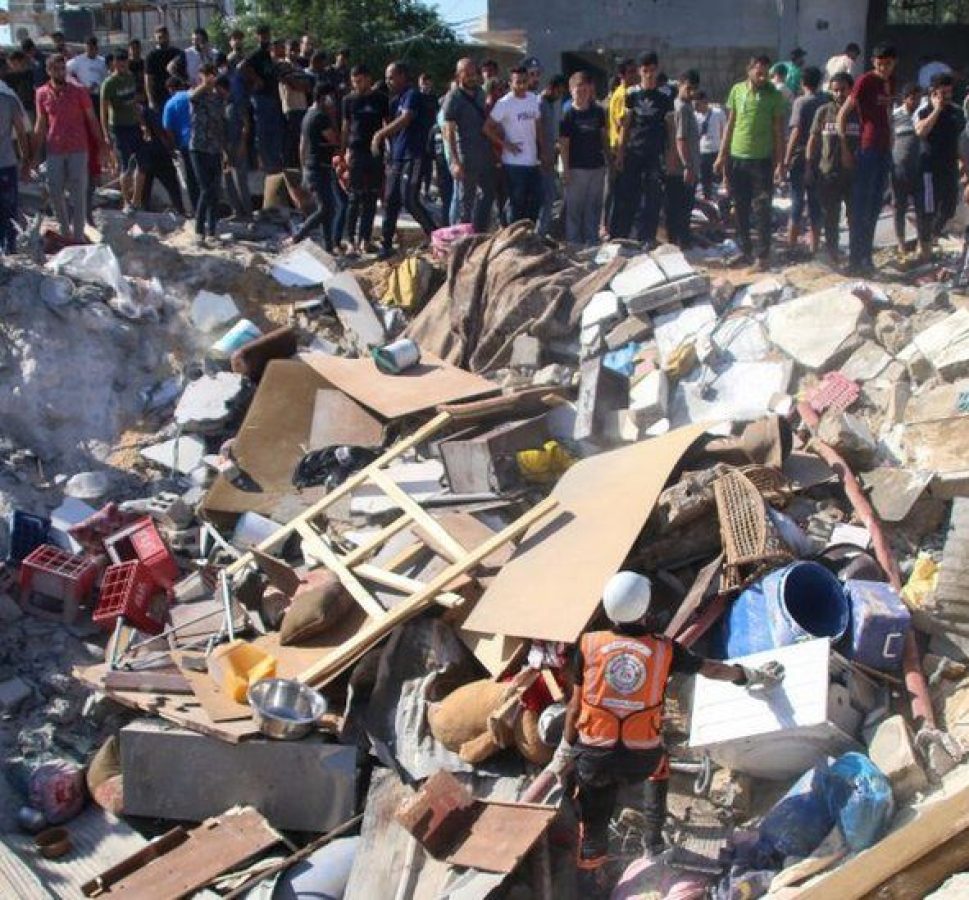
The Middle East is on the “edge of an abyss” as a result of the war between Israel and Hamas, UN agency chief Philippe Lazzarini has told the BBC.
The commissioner-general of UN relief agency UNRWA said violence could spill over across the region.
And he warned about the dire situation for civilians inside Gaza, calling again for humanitarian aid corridors into the territory.
Mr Lazzarini said he fears “the world is now losing its humanity”.
In an exclusive interview with the BBC, Mr Lazzarini reiterated calls for humanitarian aid corridors, saying help “needs to be uninterrupted… predictable [and] meaningful” to help the people of Gaza.
Speaking in Jerusalem, the head of UNRWA condemned Hamas’s attack on Israel, calling it a “horrific and barbaric massacre” that had created a “national trauma, a collective trauma in Israel”.
“But this event still does not justify that the war is conducted without any restraint,” he said. “And I do not believe that killing even more civilians is in the interest of the future security and peace here in the region.”
Asked if Israelis were respecting international humanitarian law, Mr Lazzarini said: “Listen, we are now in a situation where there is a total siege being imposed in the Gaza Strip.
“We are in a situation where more than a million people have been asked to be displaced. So this amounts to collective punishment, and collective punishment is a violation of international humanitarian law.”
He added: “We call to the Israelis and to anyone relevant in this conflict to respect international humanitarian law. There is no exception for anyone.”
I have sometimes the impression that the world is now losing its humanityPhilippe Lazzarini
UNRWA commissioner-general
Speaking about the growing humanitarian crisis in Gaza, Mr Lazzarini said 2.2 million Palestinians, half of whom have been displaced, are “basically lacking everything”.
“There is no water. You have four toilets for 4,000 people. They are living on the floor,” he said. “We are on the brink.”
“If there is no water anymore in the Gaza Strip, things will accelerate. And the disaster which is already unfolding under our eyes, will become even worse,” Mr Lazzarini said.

The UN has previously warned of a “humanitarian catastrophe” unless aid can get into Gaza.
Mr Lazzarini said that before Hamas’s attack on 7 October, around 500 trucks a day would carry aid, fuel and other goods into the Strip.
Now, he said, it is unclear how much aid they need to send or what they will even be allowed to take in – but estimated the agency would need “at least 100 trucks a day” for Gazans.
On Wednesday, Israeli Prime Minister Benjamin Netanyahu confirmed that his country would “not thwart” supplies going from Egypt to the civilian population in southern Gaza.
However, no aid has yet has crossed into the territory via the Rafah crossing from Egypt.
World Health Organization director general Tedros Adhanom Ghebreyesus told reporters on Thursday: “Our trucks are loaded and ready to go.” He said supplies would be delivered as soon as the Rafah crossing opened – “hopefully tomorrow”, he added.
Mr Lazzarini ended by saying that Palestinians are now feeling “a deep sense and feeling of abandonment from the international community” amid the ongoing violence.
“They feel completely empty. They all have families member who have been killed on a daily basis. They hear about the relatives. And at the same time, they have to care of their own survival.”
“But the feeling of abandonment should not be underestimated.”






